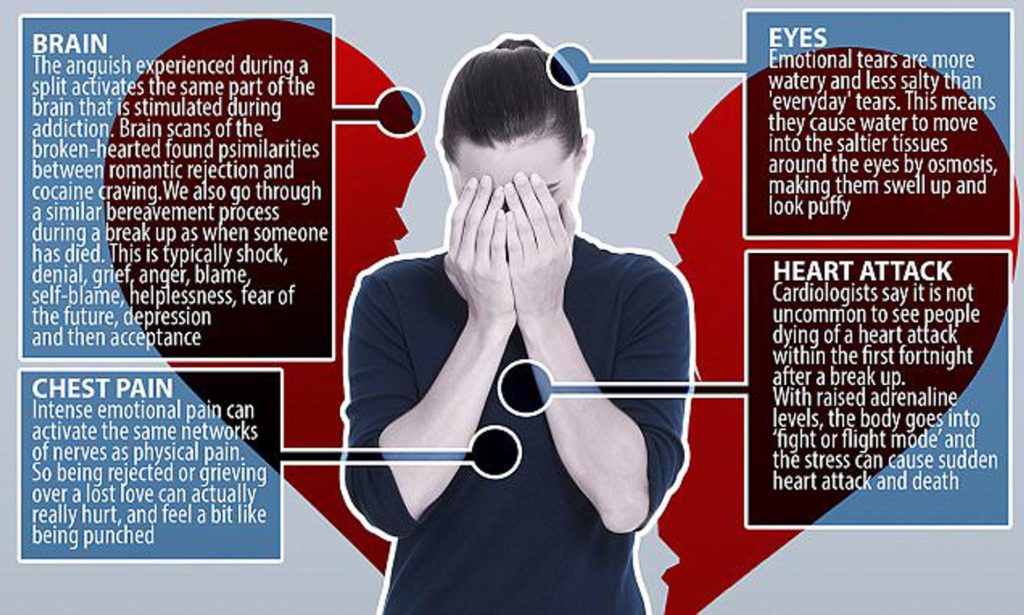“My heart hurts” deep phrase that usually expresses the feeling of a person who is suffering and is in one (or more) of the following situations: emotional shock, end of a romantic relationship, loss of a loved one or serious discussion. with someone, etc.
What many people don’t know is that after much research on it, we can say that emotional pain has physical and bodily consequences.
- Various brain studies have shown that the same part of the brain that functions as a processor of physical pain also has the task of treating emotional pain.
- Many experts on the subject say that just as there are physical injuries that cause chronic pain.
- There are also emotional injuries.
- Wounds.
- Which many people never manage to recover and feel increasingly painful suffering.
Some of the most common causes of this “condition” include social exclusion, the end of a relationship, and the loss of a loved one.
And among the most recurrent symptoms of people with such pains are
? Chest pain.
? Principles of despair and madness.
? Dyspepsia (or indigestion)
? Loss of meaning in life and what to do in everyday life.
According to Professor David Alexander, director of the Trauma Research Centre in Aberdeen, Scotland (a professional committed to helping during disasters such as the Asian tsunami and the Iraq war), chronic emotional pain undoubtedly translates into physical pain.
Alexander says that just as medical research has a duty to focus on physical pain, all patients express sensations such as ‘stomach pain’ and ‘headaches’, which clearly shows that most of the time, diseases begin in the emotional sphere.
Scientists therefore support the theory that people who fail to adapt and overcome emotional pain are the ones who must experience the highest level of physical pain, and 10% of those who have suffered the loss of a loved one can be included in this group. .
Researcher Mary Frances O’Connor says emotional discomfort becomes a “complex punishment,” resulting in feelings of bitterness and boredom, as well as loss of vision for the future and life expectancy. Therefore, several people can adapt to these situations, but many others do not reach these levels of resilience.
In short, it is possible to die of “broken heart”
Martin Cowie, professor of cardiology at Brompton Hospital in London, says this is a very common trend in men, and that the greatest risk is within six months of the loss of a loved one. In fact, the stress associated with this type of situation increases, as well as the chances of having a heart attack.
Certainly, in our passage through life, we will have to face difficult situations, because no one is freed from them, the important thing is that we can overcome these situations in order to remedy our emotional and physical pains, in addition, if we are interested in our well-being, we can also contribute to “Healing Hearts”.
Image credits: Hayley Bouchard

